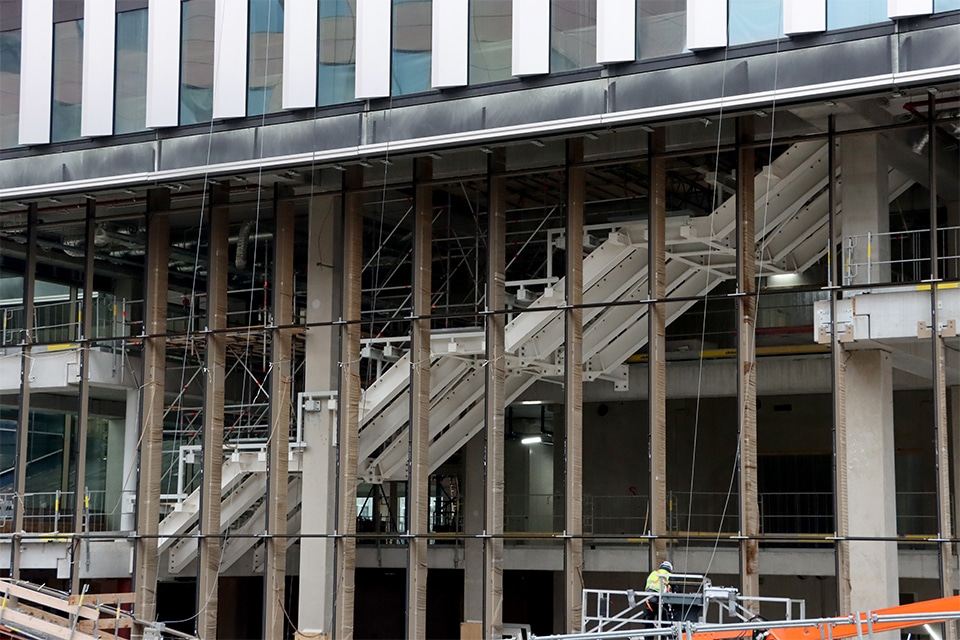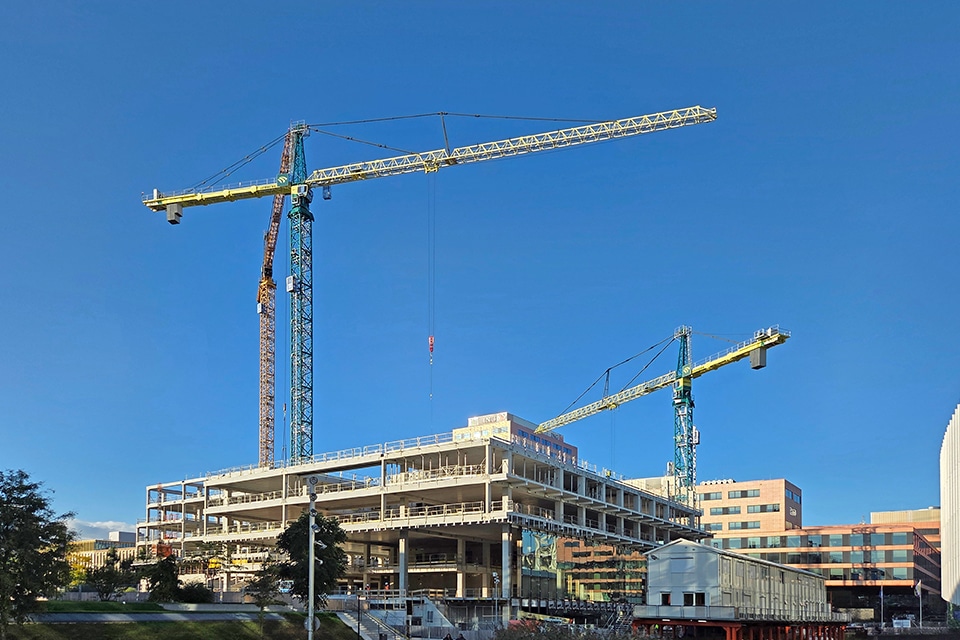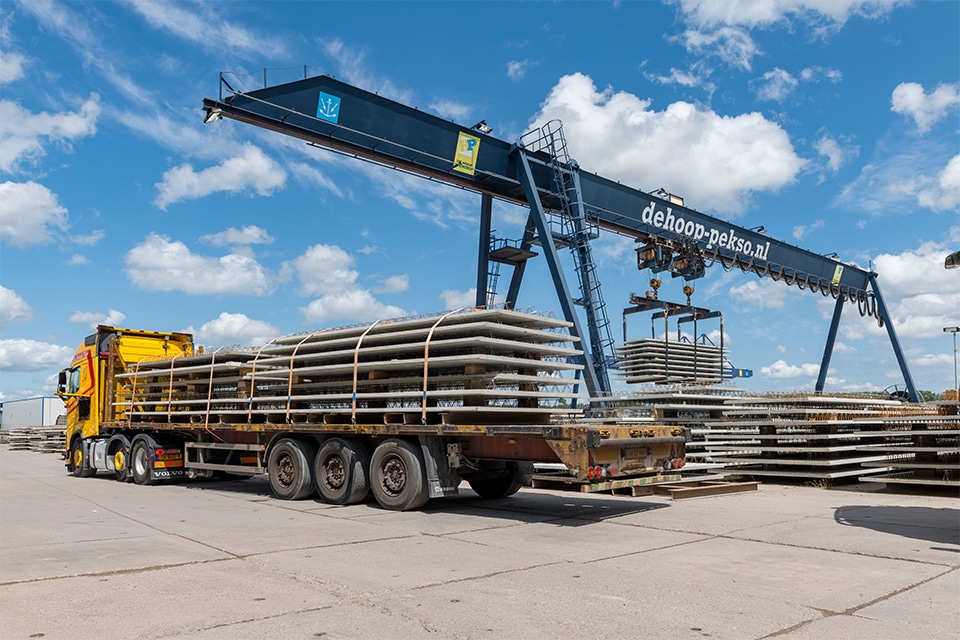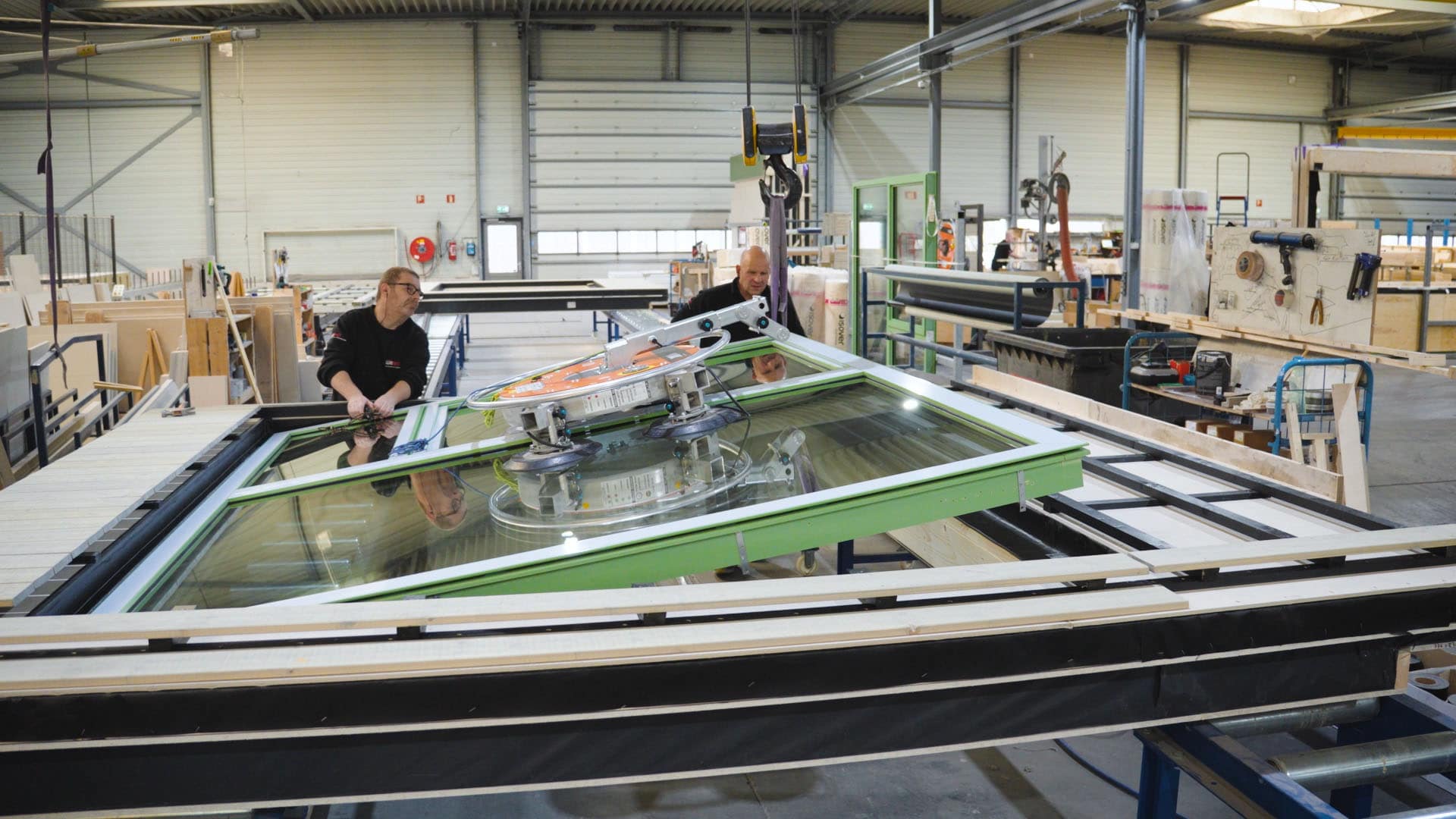
'The key to affordable housing is wood'
Johan De Vlieger is certain: the future of our residential construction is wood. In fact, within one or two generations, he believes, the construction of brick homes will disappear completely, to make way for a new reality of modular wood frame construction. De Vlieger is CEO of Bostoen Group, which includes Bostoen, Jumatt, BFB Construct and BFB Wood. With the latter firm, he is already sorting out future developments.

With 50 years of experience in turnkey solutions, property developer and contractor Bostoen builds quality and sustainable new construction projects. From start to finish and with passion and respect for people and the environment. The company was founded in 1973 by Francis Bostoen, with the ambition to create affordable and quality housing for everyone. "An approach that has never changed," De Vlieger emphasizes. "Housing is still a primary necessity of life, although the definition of what is affordable has evolved considerably. As an organization, we have moved with this. For example, around 2000 we came to the realization that tomorrow's housing requires a different approach than today's housing. New insights regarding ecological sustainability and worrying trends such as staff shortages mean that the traditional bricklaying of houses and apartment buildings is no longer sustainable. The mason of yesteryear is virtually non-existent. For that reason, around 2000 we took over an existing and experienced company in modular wooden houses: Jumatt, which continued to expand in the following years. Thus we made the transition from the business to consumer (B2C) to the business to business (B2B) market, in which we build standardized elements under the name BFB Wood. Completely in wood and preferably on a modular basis."
Shift from B2C to B2B
"Modular construction in wood is the future for residential construction throughout Western Europe," De Vlieger emphasizes. "We have been following this market for more than 50 years, including the labor market, the ecology market and the affordability story. And no matter how you look at it, more and more people want to settle in our countries. As a result, the housing shortage will continue to grow. A trend reinforced by the number of permits that should make tomorrow's housing possible. Not only by our government, but also because citizens are becoming increasingly empowered and appealing against everything being built in their neighborhoods. As a result, housing is becoming less and less affordable and the target market will also change. Thus, we expect to build more and more for investors, who will then offer the homes on
the rental market."
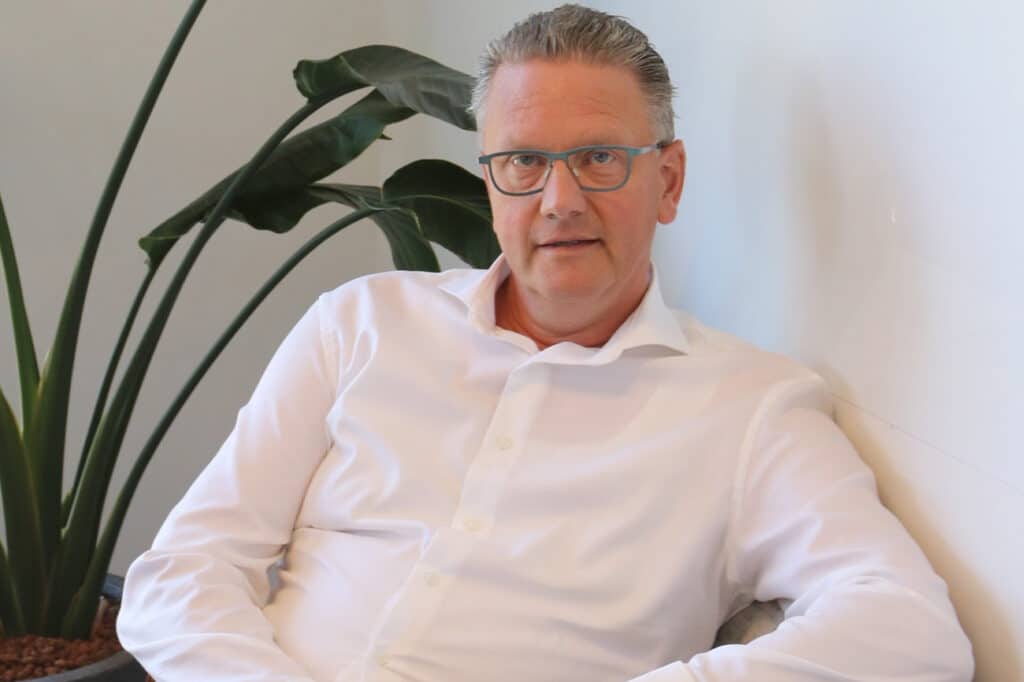
The advantages of wood
Affordability is also central in the "new reality," De Vlieger expects. After all, the lower the cost and selling price of a rentable home, the higher the financial return for the investor. "We can respond to this by building modularly, with the choice of wood offering many advantages. For example, building in wood is considerably faster than traditional construction, and the thermal and acoustic insulation values are also better. The same goes for quality, because construction can take place under the best climatic and labor conditions. In price, building with wood is equal to or even cheaper than traditional building. Moreover, it is much more ecological. The tree we cut down today for our modular homes will be planted back tomorrow. This is how we complete the circle."
Brick in the stomach
When you look on a global level, more than 80% of residential construction is done in wood, De Vlieger knows. "From Scandinavia to Canada, the United States, Austria and Switzerland: everyone is building with wood. Only in Belgium, the Netherlands and some surrounding countries do we have the proverbial brick in our stomachs. We may think that our way of building is quite normal, but it is anything but. And our expectation is that this way of building will also gradually disappear. In one or at most two generations, no one will build with brick anymore and building will be done entirely in wood. With BFB Wood, we are already sorting for that now."
Standardization as a basis for affordable housing
"To keep our homes affordable also toward the future, we have abandoned the 'custom' story," De Vlieger said. "Instead, we very deliberately opted for standardization." He compares it to a Lego package, where everyone gets the same types and numbers of bricks but still realizes completely different structures. "The modular building blocks that come out of our factory are exterior walls, interior walls, ceilings and roofs (2D). But also complete modules (3D), which developers, architects and contractors can use to put together complete buildings. From tiny houses to single-family homes and apartment buildings, which can then be rented to consumers. With this approach, we are not reinventing hot water, but joining the inevitable transition to wood. The new generations are certainly ready for this, but the older generations must also come along. For them too, wooden (senior citizen) homes must become an option. A brick home is not bad, but different. And above all: not our future." An extraordinary statement from someone who built homes in stone for 50 years. But, as he says himself, "It's just a fool who never changes his mind."
Heeft u vragen over dit artikel, project of product?
Neem dan rechtstreeks contact op met BFB Wood - bostoen group.
 Contact opnemen
Contact opnemen
